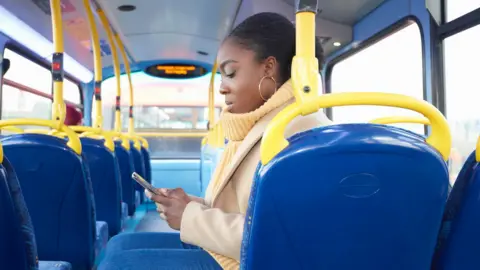In a compelling push to empower young people across England, a report from a committee of Members of Parliament (MPs) advocates for the introduction of free bus passes for individuals under the age of 22. This initiative aims to facilitate easier access to education and employment opportunities for youth who rely on public transportation. The report highlights a troubling trend: an alarming decrease in bus journeys taken in England, juxtaposed with rising fares that exceed inflation. This situation is perceived as an impediment to both personal development and social mobility in numerous communities.
The urgency of such a proposal is underscored by the fact that the Department for Transport, while announcing that it will allocate £1 billion in multi-year funding to enhance bus service reliability and frequency, acknowledges the existing shortcomings within the transportation network. For many under-22s, the recent hikes in fares and diminishing bus services have become formidable barriers, rendering it challenging to reach educational institutions or job sites.
The disparity is notably evident when comparing England to Scotland, where free bus travel has been available to individuals aged between five and 22 since January 2022. The contrasting results raise questions about access to transport services in various regions of England, where bus journeys plummeted from 4.6 billion in 2009 to only 3.6 billion by 2024. Particularly in rural and small-town areas, many residents face either non-existent or highly infrequent bus services, significantly limiting their travel options.
For youth seeking employment, the consequences are dire. A study from 2019 highlighted that approximately 57% of jobseekers lived in areas where public transport made it impossible to reach a job center within a reasonable travel time of 45 minutes. The MPs’ report bluntly points out that “high bus fares and limited local provision can severely restrict young people’s access to education, employment, and other opportunities.”
As part of the campaign to push for free bus passes, testimonials from young individuals reveal the day-to-day struggles they face. Alex Mustafa, a 19-year-old student, emphasizes her dependence on bus services due to her inability to drive. She expresses that a free bus pass would immensely aid financially constrained youth in fostering social connections without having to shoulder the burden of rising costs associated with travel. Mustafa recounts frustrating experiences waiting for buses that often arrive canceled or late, which has resulted in missed commitments both in work and social circles.
Roman Dibden, the chief executive of youth charity Rise Up, further reinforces these sentiments by sharing that many young people often forego job interviews due to prohibitive fare costs. In startling terms, he elucidates that exempting under-22s from such transportation costs could dismantle significant barriers, thus widening access to jobs, training programs, and apprenticeships, particularly in communities where such opportunities are scarce.
In a neighboring segment of the discussion, Dylan Lewis-Creser, a mayoral candidate and student, underscores the financial strain of commuting. They express that the prospect of free bus travel could alleviate substantial weekly expenses that accumulate rapidly for students and young workers. Lewis-Creser urges greater discourse around the necessity of making transportation more accessible and reliable for young people, echoing sentiments already evident in Scotland, where similar measures have been positively impactful.
The financial contributions of bus passengers to local economies are considerable, amounting to an estimated £39.1 billion annually, according to KPMG. Yet emerging voices indicate that the bus sector’s economic contributions have diminished, with a reported drop of around £8.9 billion between 2011 and 2023. The current deregulated environment presents challenges as commercial operators often avoid serving less profitable routes, disproportionately affecting vulnerable communities in dire need of public transport.
The committee’s recommendations extend beyond the provision of free bus passes, advocating for improved infrastructure at bus stops and shelters to enhance safety perceptions. This is particularly crucial for older populations who might hesitate to use public transport if they feel insecure. Entities like North Norfolk Community Transport resonate with the committee’s findings, revealing that bus services can significantly affect an individual’s quality of life and prevent social isolation among their users.
In summary, the NHS-operated alternatives and the approach toward bus fare caps are being examined for their long-term sustainability and effectiveness. Local governance bodies are already encouraged to consider bespoke solutions for their communities, potentially adjusting transport policies to meet the distinct needs of their constituents. The consensus emerging from these discussions emphasizes that proactive measures to improve public transport accessibility must include financial assistance, such as free bus passes for young individuals who may otherwise be excluded from vital economic and social opportunities.











